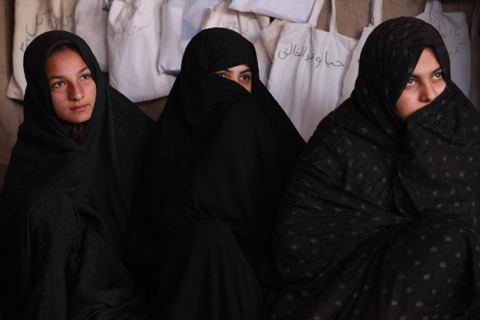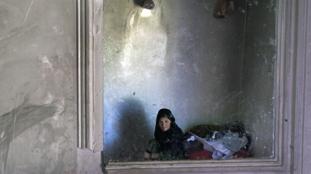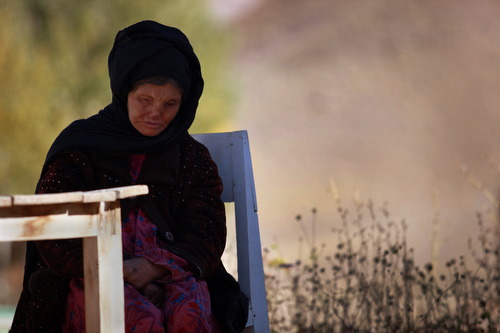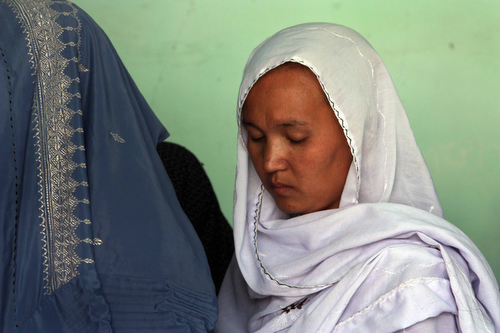KABUL - “Progress in ending harmful practices, intimidation and violence against women and girls can enable them to fully and actively participate in the country's political and economic development. This contributes to improvements in the lives of all Afghans. Moreover, in recent months Afghanistan has witnessed several cases of violence, including abduction and targeted killings by anti-Government elements aimed at female Government officials and public figures. Such deplorable attacks must stop as they discourage women and girls from pursuing careers in the public arena for fear of losing their lives.”
These are the words of the Secretary-General’s Special Representative for Afghanistan, Ján Kubiš, on the occasion of the International Day for the Elimination of Violence against Women, which is observed on Monday, 25 November, and for which he was joined in speaking out by a range of senior officials from UN agencies, funds and programmes based in Afghanistan.
The International Day also kicks off the 16 Days of Activism Against Gender-Based Violence, an international campaign which through, the overlapping of key dates – such as the International Day for the Elimination of Violence against Women and International Human Right Day, which falls on 10 December, amongst others – symbolically links violence against women and human rights and aims to emphasize that such violence is a violation of human rights.
The UN General Assembly designated 25 November as the International Day for the Elimination of Violence against Women through a resolution passed in 1999. It invited governments, international organizations and non-governmental organizations to hold activities designed to raise public awareness of the problem on that day.
According to the UN, up to 70 per cent of women experience violence in their lifetime. The violence against women takes many forms – physical, sexual, psychological and economic. These forms of violence are interrelated and affect women from before birth to old age.
Women who experience violence suffer a range of health problems and their ability to participate in public life is diminished, with such violence also harming families and communities across generations and reinforcing other violence prevalent in society. Violence against women also impoverishes women, their families and communities, with the roots of violence against women lying in persistent discrimination against women.
In Afghanistan, the issue is a serious one. More than 4,000 cases of violence against women and girls were reported by 33 of the country’s 34 provinces to the Ministry of Women’s Affairs in 2010-2012.
For the observance of the 16 Days of Activism campaign, UN agencies and their Afghan partners are implementing several activities that promote awareness on the elimination of violence against women, mobilize communities, social leaders, and particularly engage men, boys and youth as actors for change, promoting their own capacity to advocate for prevention, activism, and societal transformation.
Although Afghanistan ratified the Convention on the Elimination of all Forms of Violence Against Women (CEDAW) in March 2003 and important steps have been taken nationally and locally to ensure women’s human rights, much more needs to be done, Mr. Kubiš and other UN officials said in a joint press release.
“It is essential that the Government of Afghanistan and the international community stand by their commitments to improve access to justice for all, in particular women, by ensuring that the Constitution and other fundamental laws are enforced, and that the Eliminating Violence Against Women (EVAW) Law is fully implemented,” said the Country Representative of the UN Entity for Gender Equality and the Empowerment of Women (UN Women), Ingibjorg Solrun Gisladottir.
“Afghanistan can only become a peaceful and prosperous nation with the participation of women in all spheres of live,” said the Country Director of the UN Development Programme (UNDP), Alvaro Rodriguez. “We encourage all young Afghans to speak up and act if they witness any incident of violence against women. It is in their hands to make Afghanistan a better country for all.”
As Afghanistan enters a new era of sovereignty and self-reliance, it is imperative that the large population of young people is aware of its rights and obligations in order to be constructive and active contributors to the nation’s development, the UN officials continued in the joint press release. They noted that, as agents of change, young people must be empowered through information, action, and the opportunity to participate.
“Gender-based violence, discrimination and abuse are serious issues that concern Afghan women and girls, including returning refugees and internally displaced persons (IDPs) in areas of high return and in IDP communities in Afghanistan,” said the Representative of the Office of the UN High Commissioner for Refugees (UNHCR), Bo Schack.
“We are committed to supporting girls and boys by paving the ground for safe learning environment in the schools as awareness and knowledge are key to address violence against women and girls and create a positive legacy for Afghanistan’s youth,” Mr. Schack added.
In the press release, the UN officials noted that the world body remains committed to supporting the Government of Afghanistan in meeting its national and international obligations and commitments impacting women and girls, and, in particular, ensuring that women have equal opportunities to participate in political and peace processes as well as in economic activities and other spheres of community and public life.
In his latest briefing to the UN Security Council in September, Special Representative Kubiš said “increasing attacks” on women are a major concern in Afghanistan.
He cited examples of targeted killings of Afghan women, including the killing of a female police officer in southern Helmand province, the heads of the appellate court and the provincial election office in north-eastern Kunduz province, a district education head in central Parwan province, and a young woman taking part in vaccination campaigns in northern Jawzjan province.
In his most recent report to the Council, Secretary-General Ban Ki-moon said “greater progress” on implementation of the Law on the Elimination of Violence against Women will continue to be a “clear priority” for the UN in Afghanistan.
According to UNAMA monitoring, the number of women and girls prosecuted for so-called moral crimes increased during the first six months of this year despite the Supreme Court and the Office of the Attorney-General having issued three directives stating that running away from home is not a crime.
“It appears that criminalization of the act still occurs, or that prosecutors use charges of attempted adultery instead, with 450 women and girls imprisoned in 2012 and 600 so far in 2013,” said Mr. Ban, in his report, released in early September.








